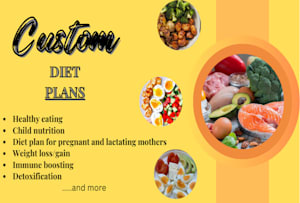Diet Plan for Weight Loss for Lactating Mothers: Healthy Tips & Meal Ideas

A diet plan for weight loss for lactating mothers is a delicate dance, expertly balancing the needs of both mom and baby. Breastfeeding, a transformative journey of nourishment and connection, demands a nutritional strategy that supports milk production while facilitating healthy weight management. The key lies in understanding the unique caloric demands of lactation and crafting a personalized meal plan that fuels both body and soul. This isn’t about drastic restrictions or quick fixes but about mindful choices that empower mothers to thrive and reclaim their energy. This comprehensive guide delves into the key elements of a balanced postpartum weight loss plan, focusing on nutrient-rich foods, portion control, and strategies to promote sustainable and fulfilling health.
Understanding Caloric Needs: Balancing Milk Production and Weight Loss

Navigating the world of calorie needs during breastfeeding can be challenging, but it’s crucial to understand the dynamic between a mother’s nutritional requirements and her desire for weight management. The body’s demands shift dramatically during lactation, impacting both energy expenditure and nutrient intake. The production of breast milk itself requires a significant caloric investment, estimated to be around 500 calories per day. This amplified energy expenditure suggests that a strict calorie restriction isn’t the answer for lactating mothers. Instead, the focus should be on a balanced diet rich in essential nutrients without jeopardizing milk production.
Diet Plan for Weight Loss for Lactating Mothers – Prioritizing Nutrient-Rich Foods

The foundation of any successful postpartum weight loss plan rests upon prioritizing nutrient-rich foods that provide the building blocks for both mother and baby. This means choosing a variety of foods from each food group, ensuring a balanced intake of carbohydrates, protein, healthy fats, vitamins, and minerals. The emphasis should be on whole, unprocessed foods, such as fruits, vegetables, lean proteins, whole grains, and healthy fats. These foods provide sustained energy, promote satiety, and support overall health.
The Power of Portion Control

While consuming nutrient-rich foods is essential, portion control is equally vital to achieve a healthy weight. Many mothers find that simply adjusting the size of their usual portions can make a significant difference. This technique, often called “mindful eating”, involves being attentive to hunger cues and stopping once feeling comfortably full. It also encourages incorporating healthy snacks throughout the day to prevent overeating during meals.
Maintaining a Steady Blood Sugar Level

One of the most significant factors impacting weight management is maintaining a stable blood sugar level. Fluctuations in blood sugar can lead to feelings of fatigue, cravings, and food binges. Opting for complex carbohydrates, such as whole grains and legumes, over refined sugars and processed foods can help stabilize blood sugar levels. Additionally, incorporating protein and healthy fats alongside carbohydrates can further prevent blood sugar spikes and crashes.
Protein: The Building Blocks for Recovery and Weight Management

Protein is a critical macronutrient that plays a vital role in both postpartum recovery and weight management. It’s a building block for muscle repair and supports the production of essential enzymes, hormones, and antibodies. This nutrient also helps regulate blood sugar levels, promote feelings of fullness, and boosts metabolism.
The Importance of Adequate Protein Intake

Mothers should strive to consume adequate protein throughout the day, aiming for a balanced intake of 2-3 servings per meal. This may involve incorporating protein-rich foods like eggs, low-fat dairy products, lean meat, poultry, fish, beans, and legumes into their diet. This approach goes beyond simply satisfying hunger; it fosters a feeling of satiety, making it less likely for mothers to indulge in unhealthy snacks or overeat.
The Role of Protein in Breast Milk Production

Protein is a crucial component of breast milk, contributing to the healthy growth and development of infants. During lactation, mothers require an increased intake of protein to support milk production and ensure the optimal nurturing of their babies.
Selecting High-Quality Protein Sources

For optimal energy and well-being, it’s vital to prioritize high-quality protein sources. These include lean meats, poultry without skin, fish, eggs, low-fat dairy products, beans, lentils, quinoa, and tofu. These sources provide a complete amino acid profile, essential for the body’s various metabolic processes, including muscle growth and repair.
Healthy Fats: Fueling Metabolism and Supporting Brain Health

Healthy fats are not the enemy of weight loss; they play a vital role in fueling our bodies, supporting hormonal balance, and promoting brain health. During lactation, incorporating healthy fats is crucial for both mother and baby.
The Importance of Omega-3 Fatty Acids
Omega-3 fatty acids are essential for brain function, cognitive development, and overall health. Omega-3s are particularly vital during pregnancy and breastfeeding, as they support the growing brain of the baby and contribute to the mother’s cognitive health. These fatty acids are abundant in oily fish like salmon, tuna, and mackerel, as well as in flaxseeds, chia seeds, and walnuts.
The Role of Fats in Weight Management
While high-fat diets might lead to weight gain, incorporating healthy fats can actually aid in weight management. Fats promote satiety, helping to regulate hunger and prevent overeating. They also play a role in hormone production, which can influence metabolism and fat burning.
Choosing Healthy Fats Over Unhealthy Ones
It’s crucial to differentiate between healthy and unhealthy fats. While saturated and trans fats should be minimized, monounsaturated and polyunsaturated fats are essential for overall health. Opt for sources like avocados, nuts, olives, olive oil, and fatty fish, which provide essential nutrients and support cardiovascular health.
Meal Composition: Strategic Strategies for Long-Term Success

Meal composition plays a vital role in creating a balanced and satisfying eating plan that supports both weight management and breastfeeding. Strategic meal planning helps ensure that mothers consume adequate nutrients without overindulging.
The Importance of Breakfast
Starting the day with a balanced and nutritious breakfast is key to setting the tone for a successful and healthy day. Breakfast kickstarts the metabolism, providing sustained energy and preventing cravings and overeating later in the day.
Fueling the Body with a Balanced Meal
A well-balanced breakfast should contain a combination of carbohydrates for energy, protein for satiety, and healthy fats for sustained energy release. This could include options like oatmeal with berries and nuts, Greek yogurt with fruit and granola, or whole-grain toast with avocado and egg.
Strategic Snacking Throughout the Day
Snacking between meals can provide a quick energy boost, prevent hunger pangs, and help keep blood sugar levels stable. Reach for healthy snacks like fruits, vegetables, nuts, seeds, yogurt, hard-boiled eggs, or cottage cheese.
Cultural Cuisines: A Celebration of Flavor and Nutrition

Dietary choices are not just about nutrition; they are a reflection of cultural heritage, family traditions, and personal preferences. Embracing cultural cuisines can offer a vibrant and flavorful approach to weight management, allowing mothers to enjoy diverse flavors while supporting their overall health.
Traditional Indian Cuisine: A Wealth of Nutritional Benefits
Traditional Indian cuisine is a treasure trove of nutrient-rich dishes that beautifully blend flavor, nutrition, and tradition. The use of lentils, spices, and wholesome grains, such as rice and millet, offers a satisfying and healthy food source for lactating mothers.
The Benefits of Spices and Herbs
Many Indian spices and herbs boast powerful medicinal benefits that can support overall health and well-being. Examples include turmeric, ginger, coriander, cardamom, and cumin, all of which possess anti-inflammatory, antioxidant, and digestive properties.
The Power of Cultural Diversity in Nutrition
Exploring different cuisines and culinary traditions expands not only our palates but also our understanding of nutrient-rich foods. By embracing diversity, we can create a balanced and satisfying eating plan that accommodates our preferences and cultural backgrounds.
Psychological Wellness: Embracing the Journey of Postpartum Transformation

The emotional journey of motherhood, while beautiful, can also be a time of significant physical and emotional change. The pressure to lose weight quickly after childbirth, often fueled by societal expectations, can be detrimental to a mother’s mental and physical health. Instead, prioritizing a healthy and balanced approach is key to lasting success.
The Importance of Patience and Self-Compassion
Patience and self-compassion are essential components of a healthy postpartum journey. This means accepting that weight loss takes time and acknowledging that the body needs time to heal and recover after childbirth. It’s important to focus on progress, no matter how small, and celebrate milestones along the way.
The Impact of Stress on Weight Management
Stress can significantly impact weight management, increasing cortisol levels which can lead to cravings for unhealthy foods and hinder fat burning. Finding healthy ways to manage stress, such as exercise, meditation, or connecting with supportive friends and family, is crucial for weight management.
The Importance of Mental and Emotional Well-Being
Supporting mental and emotional wellbeing is vital for overall health and well-being. This can involve seeking professional guidance, investing in self-care, and prioritizing time for activities that bring joy and fulfillment.
Conclusion: A Sustainable Journey Towards Balance and Harmony

The postpartum journey of weight loss is a journey of self-discovery, one that balances physical goals with emotional well-being. It’s not about restrictive diets or punishing workouts but about mindful eating, gentle exercise, and prioritizing the needs of both mother and baby. This is a journey of building a sustainable lifestyle that nourishes both body and mind, paving the way for a fulfilling and balanced life as a mother.
The key to success lies not only in the choices we make on our plates but also in embracing the journey of motherhood with grace and self-compassion. By finding a balance between nutrition and self-care, we can not only achieve our physical goals but also nurture the deep connection between mother and child, creating a foundation for a lifetime of health and happiness.




